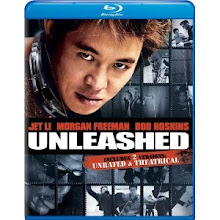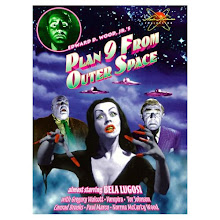 To the 8 cherished readers of this blog:
To the 8 cherished readers of this blog:Saturday, July 31, 2010
Episode 2: The Toy Story Trilogy
 To the 8 cherished readers of this blog:
To the 8 cherished readers of this blog:Yol: Or, Why I’m Better Than You
by Jason Pyles
I love unusual films because they make such great conversation pieces. And in some sick, “I had no friends in high school” way, possessing a repertoire of obscure, filmic oddities like “Gerry,” “Freaks,” “Gates of Heaven” or “Yol” gives me some feeling of superiority over the common moviegoer. See? Just the fact that you haven’t even heard of those films makes me feel powerful …
But there’s another aspect of obscure films that I love: Watching them gives me that magical, near-euphoric feeling of being in 9th grade, eating Doritos and Mountain Dew on a Saturday at 2 a.m. and happening upon some bizarre, B-movie on a late-night cable network. The next morning you wake up and remember that viewing experience to have been a lot more interesting than it actually was.
Well, “Yol” is kind of like that. But technically, it’s not all that obscure, I guess, since it won best film in 1982 at Cannes. Then again, you could probably ask 1,000 people — in vain — if they’ve ever heard of it. Why? Because it’s a Turkish film from 1982, that’s why. It’s actually quite difficult to track down, even if you did want to watch it. Andy and I found a VHS copy from the Salt Lake City Public Library. It’s not available on Netflix or Blockbuster online. Find it and watch it and you, too, can join our elitism.
As best as I could tell from my research, “Yol” has one of three English translations: 1. “trek of life” 2. “the road” or 3. “the way.” … (Or if you’re Andy, you might interpret it as “Yo!”)
We learn from its deadly serious preface that “Yol” is a message movie whose filmmakers and cast put themselves at great risk just to be associated with the project.
A few inmates at a “half-open prison” are permitted a week-long leave from the prison. They embark on their journey and begin dispersing to various cities. Naturally, each inmate has his demons associated with his prison sentence, but some prisoners’ baggage is heavier than the others’.
Mostly, “Yol” is just a long, slow, passage-of-time film. Now, at first, this seems about right because, after all, it’s a film about inmates: A convict’s sense of time passing must seem really slow. But when you think about it, this one measly week must really seem to fly to these typically caged birds.
Anyway, the fact that “Yol” is subtitled and very slow will probably discourage most viewers from ever watching it. But there are rewards for those who do. There are revelations and occurrences in “Yol” that become progressively more and more troubling. Remember how the Brad Pitt character’s initial death scene in “Meet Joe Black” is jarringly startling? Well, there’s nothing immediately upsetting about “Yol.” Its alarming developments slowly become increasingly alarming as they echo in your mind. The more you dwell on “Yol,” the more haunting it becomes.
To keep this film and our elite status exclusive, I won’t reveal what these troubling developments are. You’ll just have to brave it for yourself. But if you read Andy’s exceptional review below (posted on July 6), he throws a bone and reveals one of the stories.
Just to be clear, I'm not saying "Yol" is entertaining at all. Watching "Yol" is akin to eating a worm: It's not overly pleasant while you're doing it, but after you've endured the experience, you have a singular accomplishment (that nobody cares about).
Mise en Scène and Terry Gilliam's Brazil
by Jason Pyles
“Brazil” was co-written and directed by Terry Gilliam. For those who are unacquainted with Mr. Gilliam, allow me to introduce you:
Somehow Terry Gilliam is simultaneously both the argument for — as well as the argument against — studios allowing a director to have free reign with his or her creative vision. Gilliam is a true artist, indeed, which is to say, his artistic passions often slide off the edge into madness.
Case in point: Among the special features of Gilliam’s “12 Monkeys” DVD, there is a making-of documentary titled “The Hamster Factor and Other Tales of 12 Monkeys.” This documentary’s segment about “the hamster factor” perfectly illustrates an artist like Gilliam’s paradoxical strength and weakness. There is a brief, simple scene that shows Bruce Willis sitting naked. The documentary indicates that this scene should have only taken a few minutes to shoot. But Gilliam insisted on having a hamster running inside a wheel during this scene.
What should have taken 15 minutes ended up taking several hours, thanks to an uncooperative hamster (and a scarily determined director).
Now, anybody who’s ever created anything knows that it’s often the little (unnecessary) details that can give an artist a feeling of satisfaction and ownership. However, the documentary shows us the final product of this scene from “12 Monkeys” and the running hamster is barely visible. If you weren’t looking for it, I believe the hamster would be totally invisible, or at least, indistinguishable. The documentary gives the definite impression that it’s not as important for Gilliam (or his audience) to see this detail as it is for him to simply know it’s there.
Greatness or madness? I think I know, but let’s just say it depends. The studio financing the project will give you one answer; the handsomely paid hamster wrangler would probably give you another. Hard to say. I guess it also depends on the artist: I mean, Orson Welles was basically given carte blanche, and he delivered “Citizen Kane.” Innumerable counter examples also exist. Sure, I lean toward letting the artist freely execute his or her vision, but then, it’s not my money, either.
“The Hamster Effect” documentary, as well as another called “Lost in La Mancha” (2002), shows us that Gilliam is not only obsessive, but he’s also very unlucky. Even the word “cursed” might be appropriate. His bad luck is a whole other discussion for another time and place.
I prefaced my comments on “Brazil” with this Terry Gilliam discussion about the hamster scene because I think it lends us insight into the place where Gilliam is coming from in his films. I’m suggesting that “Brazil” is more autobiographical than you might expect. Think about it — for those who have seen “Brazil” — the protagonist, Sam Lowry (Jonathan Pryce), envisions himself in a much more heroic light than the rest of the world sees him. In his fantasies, he’s a winged warrior of romance and passion, free to fly anywhere he pleases. This surely isn’t much different from how Gilliam must picture himself as a filmmaker.
And Lowry and his love, Jill Layton (Kim Greist), are ominously watched over, restricted and regulated by the Powers That Be, namely a suffocating and controlling government, which has its reasons, namely, counter-terrorism.
How parallel the above paragraph seems to the way Gilliam must surely feel that he and his love (the film in his mind) are ominously watched over, restricted and regulated by the Powers That Be, namely a suffocating studio and board of investors, which have their reasons, namely, financial viability.
…And so forth.
Yes, I agree with Andy that “Brazil” has unmistakable similarities to George Orwell’s book “1984” and to director Michael Radford’s filmic adaptation. So, anybody who’s anti-Big Government will probably love this movie in much the same way.
But to me, the biggest reason to see “Brazil” is to enjoy the chock-full richness of its mise en scène, which basically means everything the camera sees. The art direction and set design are truly something to behold, offering excessive eye-candy. Andy wondered if this film was low-budget, and I should say not. But if it was a low-budget production, that would make it all the more impressive — à la “District 9.”
Even the most casual moviegoer can recognize the look of a Tim Burton film, with all his typical, macabre weirdness. Similarly, Terry Gilliam’s films also seem to have a signature style that’s deeply rooted in mise en scène. In fact, I’d go so far as to say that Gilliam is a master of mise en scène, and I would cite “Brazil” first as evidence. In “Brazil,” even the scenery itself is a character. It carries forth the odd, tonal duality of humor and uneasiness.
So, the next time you’re feeling cinematically adventurous and arty, check out Terry Gilliam’s “Brazil.”
Tuesday, July 27, 2010
"Unleashed," blather by Andy
I wasn't expecting the world. I don't have unreasonable standards for action films. But if you, as a director, try to introduce "plot" to an action film, you have to be careful not to screw up the action. "Unleashed" is a perfect example of exactly what not to do.
If I sound vitriolic, it's because I've now watched two terrible movies with Morgan Freeman (see also "Maiden Heist," which might be the worst movie-to-talent ratio ever) and Jet Li (see also "Forbidden Kingdom," previously reviewed for the blog). I don't understand why Freeman is accepting stupid roles. There's nothing artistic, challenging, or otherwise worthy of an actor of his caliber in those two movies. And on a similar vein, Jet Li needs to focus on movies that showcase his obvious martial arts talent.
"Unleashed" is the story of a young man ("Danny," played by Jet Li) trained as a loan-shark's muscle. He was raised just like a pitbull to fight visciously every time his keeper (the loan-shark) removes his dog collar (some sort of Pavlovian response, I guess). As you would guess, eventually Danny's life changes dramatically when his keeper loses track of him and Danny meets Sam (played by Freeman), a blind, non-judgmental piano tuner with a bizarre story and an even more bizarre amount of patience and empathy towards Danny.
Danny moves in with Sam and Sam's sort-of-daughter Victoria, and his lifestyle changes dramatically. He is loved, cared-for, and he learns about simple joys and finally has some childhood experiences. He has a total change of heart and eschews all of his prior violent life.
And then, as you would expect, the keeper comes back in his life, and puts pressure on him to return to work.
So here's where I see the breakdown: the story arc where Danny begins to integrate into Sam's family is REALLY slow. It's painfully dull, not well acted, and the exposition of Danny's sorted life is very choppy and confusing. And, there's a good 30 minutes where nobody is getting their butts kicked. It goes without saying, doesn't it, that Jet Li's movies should not go more than about three or four minutes without some good violence. What I'm saying is that the middle is really slow.
And the violence, when it was there, seemed incredibly silly and poorly choreographed. It's hard for me to describe, but, if I had to, it would simply be to say that the violence seemed fake. Absolutely fake. Sub par. Like a "play fight."
The worst part of the movie was yet to come. The denouement was very unfulfilling. It was cliche, but yet the story somehow failed to follow any of the formats generally recognized as being successful. I don't want to spoil it too much, but it made no sense to me that the keeper didn't go after Sam or Victoria. It really felt flat and lame.
Jason felt really bad about subjecting me to "Yol" and "Brazil" (although I enjoyed both films), so he picked a film that he thought would actually entertain us. Not so much. Yes, other, more educated and respected critics disagree with me, but I just don't see how they liked this film.
Tuesday, July 6, 2010
"Yol," comments by Andy
All that said, it was delightfully boring. It really was a slow film, but I thought well done, genuine, and captivating in its own right.
The story "Yol" follows four fictional characters who are convicts that have been given leave from prison in Turkey. Each of the four characters travels a great distance to see family members. Each story is tragic in its own right, and the movie is intended to be expositive of then-Turkish culture.
I think the film did an excellent job showing the problems facing then-Turkish-Islamic culture. I think things have changed since (I hope anyway), but if "Yol" is accurate, Turkey sure was a depressing place, especially for women.
The most disturbing part of the film for me is the scene where Mehmet and his family are on the trail. Mehmet's wife left him after Mehmet went to prison because he was in part responsible for her brother's death (an argument I don't totally agree with). On his leave from prison, he tracked her down and she, after much opposition from her family, agreed to go with him. While on the train, they got a little frisky and decided to go into the private bathroom for some alone time... and they got caught. I'm honestly shocked at how big of deal everyone made of it. I can't believe in that kind of male-dominated society that a husband getting a little nookie with his wife could be such a big deal. Anyway, I was really saddened and embarrassed for them, and I was quite disturbed when they were gunned down by her vigilante little brother.
The two other stories are also quite depressing, but well told. All in all, I also think it quite an accomplishment that the director made this movie while in prison by giving copious notes to a very scrupulous helper.
Sunday, July 4, 2010
"Brazil" review by Andy
"Brazil" is a wonderfully delightful film. Quirky, funny, and tense all at the same time. I'm not sure why it grooved with me, but it did. I think I can explain what the movie is about without any spoilers as follows: "Brazil" is like Orwell's "1984" meets Tim Burton, who then had a baby with "A Clockwork Orange," who is being raised in "Pee-Wee's Big Adventure."
For those who are watching to check off films in which Deniro is in, he really only has an insignificant part, so be prepared.
I don't know much else about what write. The story works, even though it is very odd, and the set designs/production is intentionally and obviously bizarre (I want to say "low budget," but I don't know if that's true).
And I did really like the ending. Twist-ish, without being trite or obvious.
Anyway, that's what I thought.





























































